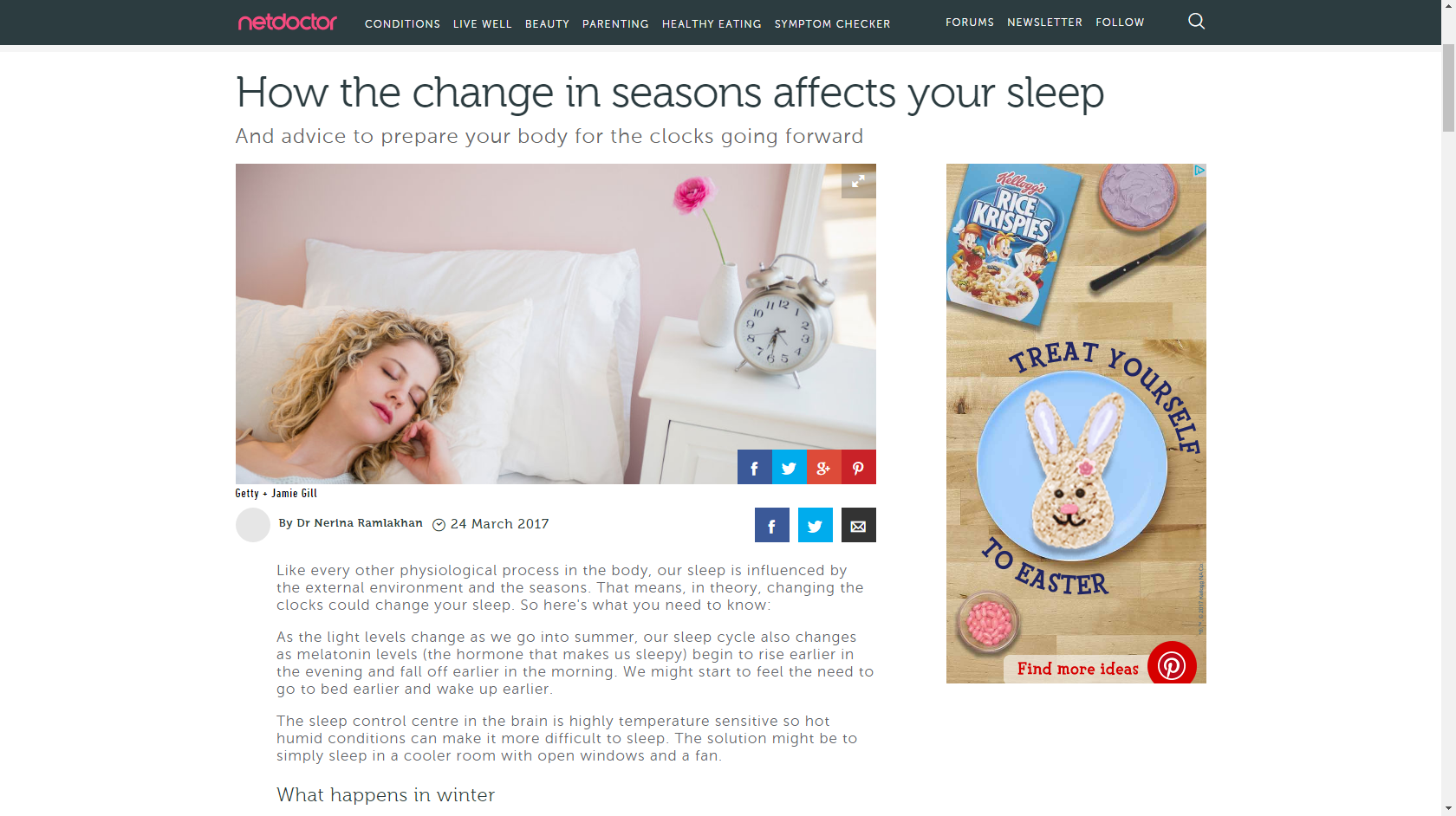
Sleep Can Be Affected By The Changing of Seasons
Sleep Can Change With the Seasons
Like every other physiological process in the body, our sleep is influenced by the external environment and the seasons. That means, in theory, changing the clocks could change your sleeping patterns. So here’s what you need to know:
As the light levels change as we go into summer, our sleep cycle also changes as melatonin levels (the hormone that makes us sleepy) begin to rise earlier in the evening and fall off earlier in the morning. We might start to feel the need to go to bed earlier and wake up earlier.
What happens in winter
Our sleeping patterns are also affected as winter draws in; the shorter days of winter and less sunlight can deplete vitamin D levels. This vitamin is vital for serotonin productions which, in turn, is vital for maintaining the sleep-wake cycle and levels of melatonin. Chronic depletion of vitamin D can cause Seasonal Affective Disorder or SAD which is why it’s important to get outdoors as much as possible during the winter months.
But one benefit of winter is that cooler air does help you to sleep better as temperature plays a key role in sleep onset and helping to establish circadian rhythms. Ideally your brain needs to be a fraction of a degree cooler than core body temperature so that the circadian timer – which controls the sleep cycle – works optimally.
Allergies and Illnesses
Each season brings new allergens, from tree and grass pollen in spring and summer to dust mites in winter. Antihistamines can cause some temporary alleviation of symptoms but they can reduce the quality of your rest, causing more vivid dreams and even nightmares. You might be better off using nasal irrigation techniques to keep the airways clear of allergens if astihistamines are causing problems.
You can buy CPAP Machines, tubing and all of your CPAP supplies at CPAP America, 707 Mantua Pike, West Deptford, NJ 08096. Feel free to contact us at 1-800-569-0167.
To read more, click here.

